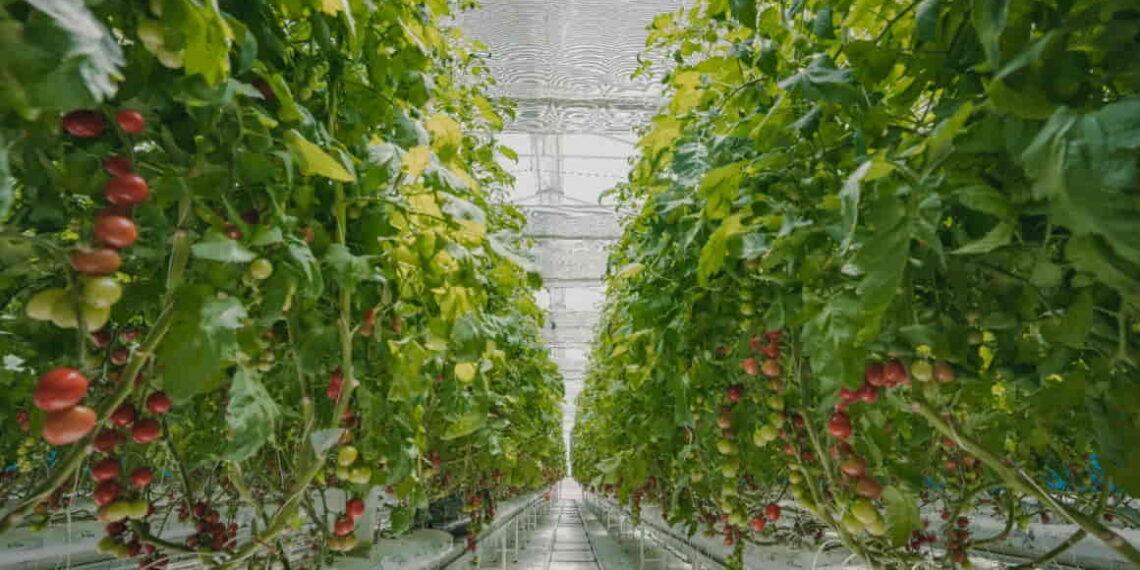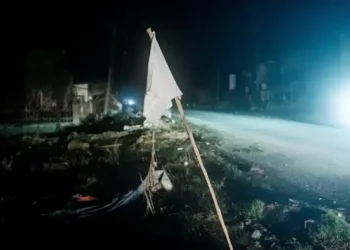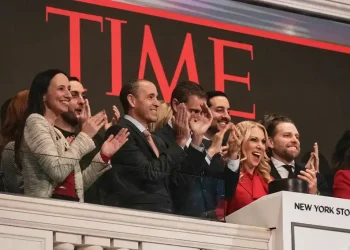This Greenhouse Technology Keeps Crops Cool Amid Rising Global Temperatures
As the world grapples with rising temperatures and volatile climate conditions, agriculture faces unprecedented challenges. Farmers struggle to keep their crops cool, especially in regions prone to extreme heat. A breakthrough innovation developed in Saudi Arabia might offer a game-changing solution.
Revolutionary Technology for Cooling Greenhouses
A Saudi-based startup, Iyris (formerly RedSea), has introduced SecondSky, a greenhouse technology that reduces interior temperatures by up to 7 degrees Celsius without compromising sunlight exposure. The innovation leverages nanotechnology embedded in plastic polymer sheeting to filter out near-infrared solar radiation.
This cooling effect significantly reduces the need for mechanical cooling and allows crops to be grown with up to 30% less water.
Developed by Derya Baran, an associate professor at the King Abdullah University of Science and Technology (KAUST), the award-winning design has been commercialized and adopted in 15 countries, including Saudi Arabia, Egypt, and the UAE—regions seeking to boost local food production and reduce reliance on imports.
Global Adoption and Impact
SecondSky has quickly gained traction beyond the Middle East. Farmers in the United States, Latin America, Mexico, Europe, South Africa, and Morocco are now using the technology.
“This isn’t just future-proofing—it’s current-proofing,” said Iyris Executive Chairperson John Keppler, emphasizing the urgency of adapting agriculture to current climate realities.
The technology has already demonstrated its potential to mitigate the effects of extreme heat, which, according to the Copernicus Climate Change Service, contributed to 2023 being the hottest year on record.
Challenges in Agriculture Due to Heat
Extreme heat events can devastate crops by:
- Drying out plants, leading to crop failure.
- Increasing vulnerability to pests and diseases.
- Demanding more resources, such as water and energy, for cooling.
SecondSky addresses these challenges by creating a controlled environment that minimizes stressors on crops.
SecondSky Integration and Sustainability
The technology has been integrated into flexible polyfilm, used for polytunnels, greenhouse plastic sheets, and netting. Unlike traditional solutions such as applying white chalk to greenhouse films, SecondSky’s additive doesn’t shorten the lifespan of the plastic.
Iyris has partnered with major plastics manufacturers, including SABIC in Saudi Arabia, Hyma Plastic in Egypt, and Armando Alvarez in Spain. To date, over 4.5 million square meters of SecondSky materials have been sold globally.
Tackling Regional Challenges: A Case Study
In Saudi Arabia, where less than 1% of land is arable, water demands for agriculture are three times the global average. To combat these challenges, Iyris collaborated on the National Food Production Initiative, creating a 0.75-hectare farm in Bada, a desert region with summer temperatures averaging 40°C (104°F).
The farm uses SecondSky and other agritech innovations to grow crops like tomatoes, cucumbers, peppers, and herbs. The success of this project has inspired local cooperatives to explore similar models.
A Broader Fight Against Desertification
Desertification poses a significant threat, with 100 million hectares of healthy land lost annually, according to the United Nations. Sustainable agritech, like SecondSky, plays a pivotal role in reversing this trend by:
- Saving water through protected agriculture.
- Increasing land and water productivity.
- Reducing environmental stressors on marginal land.
Greenhouses equipped with SecondSky can yield up to five times more than open-field farming while using seven times less water.
Future Plans and Scaling Innovation
With $16 million raised in Series A funding, Iyris plans to expand SecondSky’s applications by 2025. The company aims to help greenhouses worldwide beat the heat internally, contributing to solutions for the broader climate crisis.
By enabling sustainable agriculture, SecondSky demonstrates how innovation can transform food production in a warming world.
“The sooner we deliver drop-in solutions for agriculture, the better off we’ll all be,” said Keppler, summarizing the urgency of adopting scalable, sustainable technologies.
This article was rewritten by JournosNews.com based on verified reporting from trusted sources. The content has been independently reviewed, fact-checked, and edited for accuracy, neutrality, tone, and global readability in accordance with Google News and AdSense standards.
All opinions, quotes, or statements from contributors, experts, or sourced organizations do not necessarily reflect the views of JournosNews.com. JournosNews.com maintains full editorial independence from any external funders, sponsors, or organizations.
Stay informed with JournosNews.com — your trusted source for verified global reporting and in-depth analysis. Follow us on Google News, BlueSky, and X for real-time updates.














